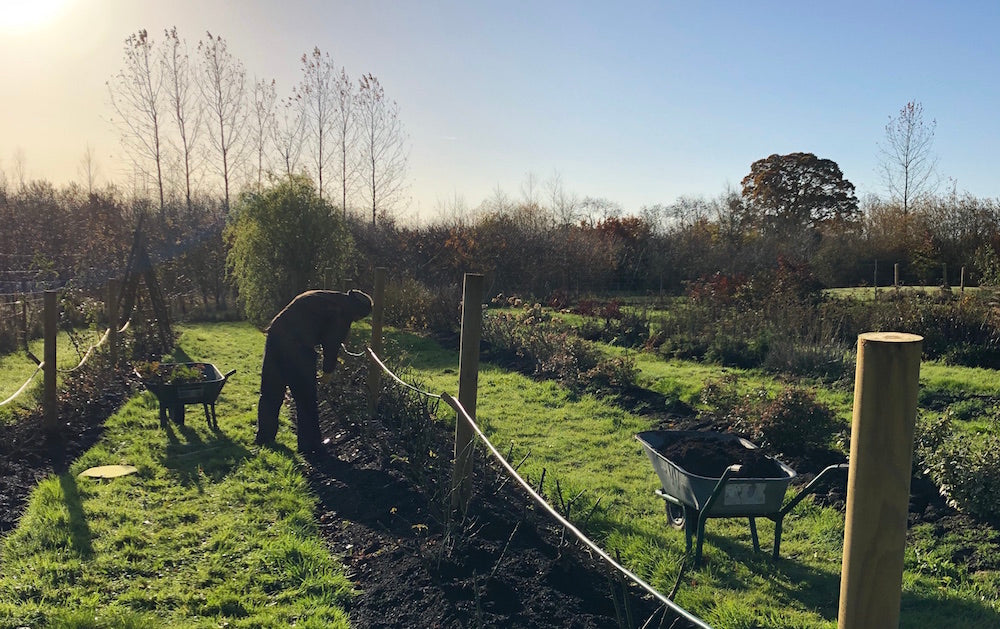Tips for pruning roses

One might think that November is a quietish month in the garden. Well, I beg to differ! After you've planted all your bulbs it's time to prune your roses.
We prune our roses hard in November because:
We aren't especially cold here in south west UK, and so, while the roses may get a little frost nipped, they're hardy enough to withstand our winter pruned - if you lived in a colder place, with harder winters, like Vermont, for example, or Northumberland, you might just give your roses a tidy up at this time of year to prevent the wind ripping them about during the winter, and then a proper prune once they're seriously dormant in, say, early February. But global warming means we're not getting the really hard winters we once did, so I take a risk and we prune our roses hard back in November.
Pruning hard in November means we get a slightly earlier crop - valuable to us as flower farmers with lots of early summer brides wanting highly scented, freshly cut, real garden roses, for their bouquets and posies.
How do we prune?
Well, they say that you ought never prune your roses yourself, because you won't prune them hard enough. So we pretend to be our neighbours and we prune really really hard, cutting back to as few as two or three stems: two or three good, strong, green stems, healthy, not rubbing one another; stems with lots of little teeny proto buds on them, from which more stems and hopefully many flowers will grow next year.
We burn the clippings because they take forever to rot down, and if you put your hands into a compost heap full of rose clippings you risk a nasty scratch - rose scratches can go sceptic, so burning is a good option here.
Then we mulch the roses as generously as we were ruthless in our pruning. Inches thick municipal green waste will help stop them drying out next year. We garden on thick, Somerset clay, so we need to break the clay up more than we need to feed with, say, horse manure. However, we do opportunistically add food from time to time: from seaweed solution, to chicken pellet and alpaca poo - a little light feed before and during the growing season keeps them looking fit and happy.
If you have bad blackspot you could make sure you take all the leaves away and burn them too. We have some blackspot, but not terrible, and we leave the leaves as a mulch. The way we grow our roses, in narrow rows in a nice, airy part of the garden, seems to help a lot with blackspot, and, touch wood! we suffer from very little rose disease.
So get out there with your secateurs. Some people are so ruthless they prune their roses with a hedge trimmer! We're not that ruthless yet! In fact, our Sharon, loves these couple of days, and it is her job to prune, while the rest of us come behind weeding and mulching and burning. She prunes the roses as though it is an art form - for which I'm grateful when we have beautiful big, fat bushes bursting with scented flowers next year.
Just so you know, I'm rejuvenating our You Tube channel at the moment, and there's a little post about pruning roses from our rose patch here at Common Farm Flowers if you'd like to have a look. I've also posted about how useful is a wasp nest when you're a flower farmer with dahlias. Hope you enjoy them!








